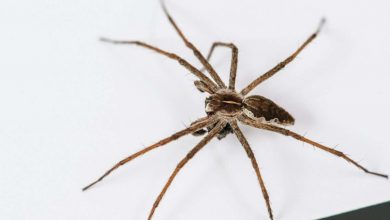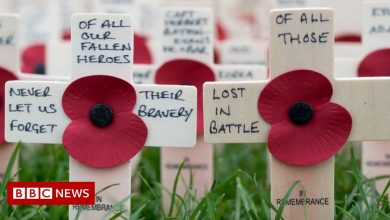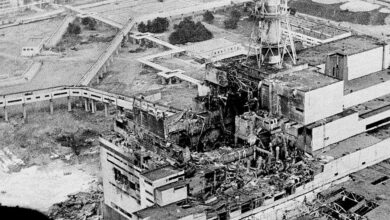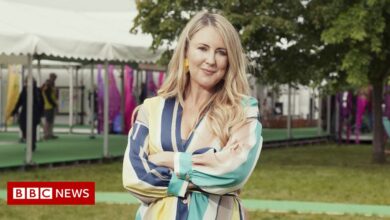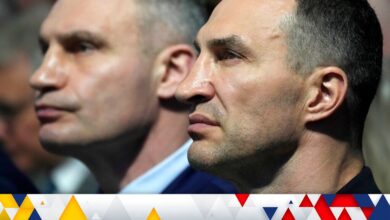Hugo Blanco, Environment Activist Who Targeted Capitalism, Dies at 88
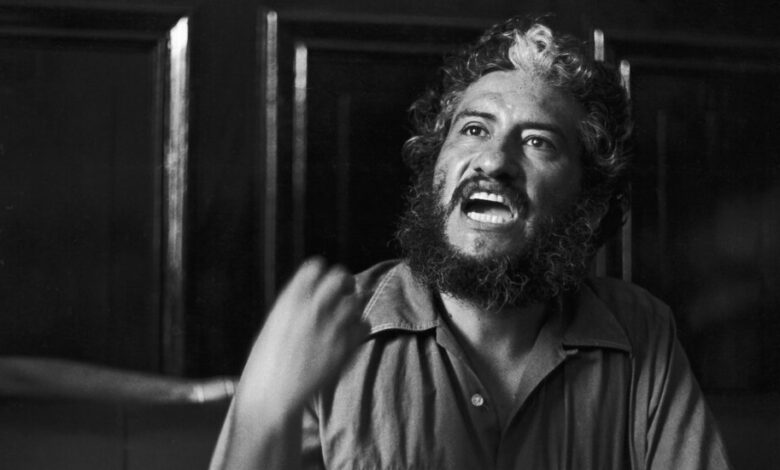
When asked to explain his worldview, the renowned Peruvian political and environmental activist Hugo Blanco liked to tell a story about mushrooms.
These mushrooms, he explained, grow only during the rainy season around his hometown, Cusco, on the eastern side of the Andes, making them a valuable delicacy.
One day in the market, he approached a woman who was standing beside a small mountain of them.
“I told her, ‘I’ll buy all of them without asking for a discount,’ which was a good deal for her, because usually you pay less for more quantity,” Mr. Blanco said in a 2017 interview with the arts and politics magazine Guernica. “But she told me, ‘No. If I sell you all of them, what am I going to sell everyone else?’ Selling wasn’t just business, but a social relationship.”
This, he said, was the essence of his belief in ecosocialism, a movement that sees capitalism as the driving force behind the world’s growing environmental crisis. For over 30 years he led marches against mines, rallied international support for the Amazon and organized efforts to expand autonomy for Indigenous people.
He was part Quechua — the Indigenous people who populate the Andean highlands — and he brought to his cause the collectivist traditions that he had learned when he was growing up; hence the story about the mushrooms. Human survival, he said, meant setting aside the profit motive in favor of a greater common good.
“I’ve always fought for social equality,” he told Guernica. “But now there’s a more important problem: the survival of my species. One hundred more years of rule by transnational companies and they’re going to exterminate the human species as they’ve exterminated other species.”
Mr. Blanco died on June 25 in Uppsala, Sweden, though his death was not widely reported at the time. He was 88. His daughter Carmen Blanco Valer said the cause of his death, in a hospital, was a gastric obstruction.
For much of his life, Mr. Blanco considered himself a follower of Leon Trotsky, the Russian Communist leader who advocated maximum reliance on a mass movement of workers in a socialist revolution.
But over time, his communism became flecked with concern over the environmental degradation that was ravaging Peru in the form of strip mining and deforestation. He spent time with, and admired, the Zapatistas of southern Mexico, an armed group that pushed away both multinational corporations and the government in favor of grass-roots control.
“We have reached a situation in which the ‘private ownership of the means of production’ has been turned into the ‘private ownership of the means of destruction,’ which will plunge us into the abyss,” he wrote in the left-wing magazine Canadian Dimension in 2008.
Hugo Blanco Galdós was born on Nov. 15, 1934, to Miguel Ángel Blanco, a lawyer who defended Quechua clients, and Victoria (Galdós) Blanco, a Quechua woman who owned a small farm.
His first marriage, to Vilma Valer, ended in divorce. Along with his daughter Carmen, he is survived by his second wife, Ana Sandoval; his sons, Marco, Bruno, Oscar and Hugo; another daughter, Maria Blanco Berglund; 13 grandchildren; and two great-grandchildren.
When he was 10, Mr. Blanco heard about a landowner who had branded one of his Quechua workers with a hot iron. His leftist sympathies were further deepened by his two brothers, both of whom were Communists.
He studied agronomy in Argentina at the University of La Plata, a hotbed of Marxism south of Buenos Aires. But he left school after a U.S.-backed coup overthrew Guatemala’s left-wing government in 1954, deciding that he needed to throw himself full time into the struggle.
He found jobs in factories, where he organized industrial workers — first in Argentina, then back in Peru, where he took part in protests against a 1958 visit by Vice President Richard M. Nixon in which Nixon’s motorcade was stoned.
Mr. Blanco soon saw that, at least in his home country, the masses were in the fields and not in the factories. He returned to Cusco.
Though he disliked being called a leader, he soon became the head of a growing movement among the Quechua peasants against the owners of the country’s vast cocoa and coffee plantations, whose exploitative labor practices kept their workers in deep poverty.
In 1959, Mr. Blanco and some 300,000 other people began occupying the plantations, capturing hundreds before the military intervened. It was a relatively nonviolent action, though he shot and killed a police officer — in self-defense, he claimed. He was arrested and swiftly condemned to death.
The sentence made him a cause célèbre for the international left. Soon the Peruvian government was inundated with protests from the likes of Jean-Paul Sartre, Simone de Beauvoir and Bertrand Russell.
Mr. Blanco’s sentence was reduced to 25 years in prison — first in solitary confinement, then on a rocky island off the Peruvian coast. Eventually a new government came to power and freed him, then sent him into exile.
He went first to Mexico, then Argentina and finally Chile, not long before a military coup overthrew that country’s socialist leader, Salvador Allende, in 1973. With his life suddenly in danger, Mr. Blanco took refuge in the Swedish Embassy.
He emerged a few days later in disguise and soon made his way to Sweden, where he lived for much of the 1970s. He was able to return late in the decade and joined mainstream politics in the ’80s, first as a representative and then as a senator in the Peruvian Congress.
He went into exile again in 1992 after President Alberto Fujimori dissolved Congress in what was called a self-coup. Mr. Blanco returned in the early 2000s, though he continued to spend stretches of time in Mexico and Sweden.
As his emphasis on environmental activism grew, he led marches against Andean mining operations and toured the world as a speaker, inspiring — and being inspired by — younger generations of activists, including Greta Thunberg of Sweden. He also founded a newspaper, Lucha Indígena, to share information with grass-roots activists around the country.
“I think that what we need to push forward is the movement for collectivity,” he told Guernica. “That’s what I believe in: power from below. And that organized society can be like that.”
